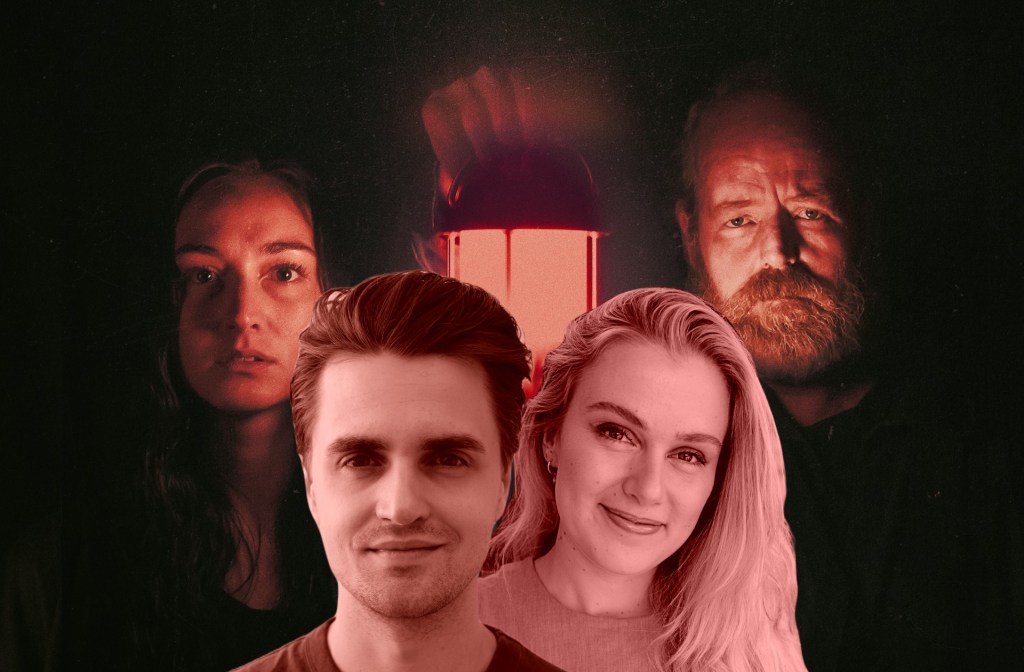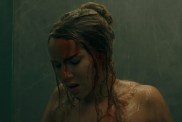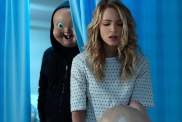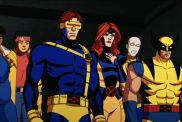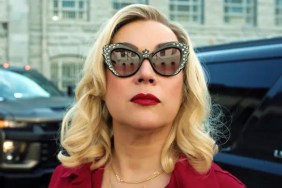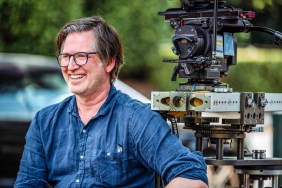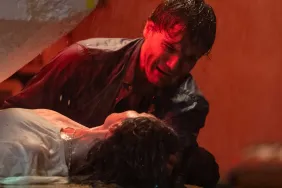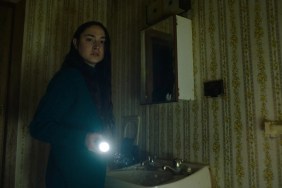You’ll Never Find Me is a tale of two people. Isolated from the rest of the world by a wild storm, these two strangers are wary of each other, but is there actually a villain here? That’s the question that keeps the tense atmosphere bubbling in Indianna Bell and Josiah Allen’s impressive debut feature film.
But it’s only one layer of it, so ComingSoon’s Senior Editor for Horror, Neil Bolt, spoke with Bell and Allen about their film, their process, and how they felt about releasing a slow-burn thriller in an impatient age.
Neil Bolt: Thanks for speaking with me. I notice you’ve worked together on several shorts before this. Has that led to a more unified mind when it comes to executing your collective vision? Does having a sounding board of a fellow director help cultivate your thoughts and ideas more effectively?
Josiah Allen: Yeah. I think from very early on, and hence why we’ve continued to work together, we’ve had very similar tastes. There’s more to it, and we’re very good friends, but it really was at university. We went to film school together; we paired up in a group for a weekly assignment and just enjoyed working together. There were already arguments! But any suggestions came from a place of wanting to strengthen the final product. I know it was a uni assignment, but that’s how we’ve worked ever since. I think working together when you have the same goal is just more fun. It takes half the pressure, and in a game of getting things done quickly, I think it becomes whoever can express or articulate what needs to be done quickest wins. We can just look at each other and know what needs to be done.
Indianna Bell: And starting out, we both had strengths in different areas because I had done a bit of theater stuff, I’d been working with actors, and I’m the one who tends to write the projects, so I was coming at it from working with actors and writing he script point of view. Joe was really visually-minded, coming at it from an editing point of view and he did shooting as well, so he had that angle.
It was really great having those perspectives and strengths when we were starting out, but now as we’ve gained more experience and worked together more, we’ve become a bit more unified in what we do.
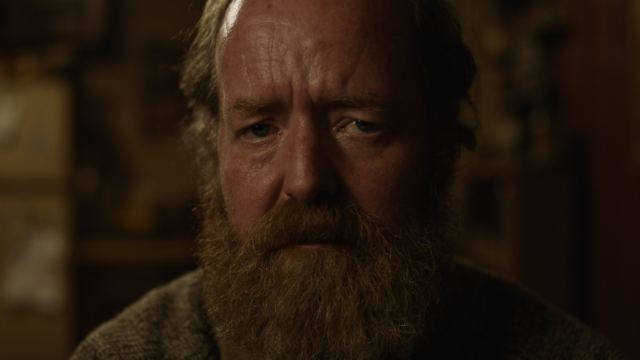
JA: There’s a lot more crossover
IB: Yeah, absolutely.
JA: Like, to be clear, I don’t write the scripts, but I’m there from the beginning having those conversations. And for example, in pre-production, I am still technically storyboarding, but Indianna is there with me, and we’re constantly going back and forth on that stuff. In the case of this film, we would storyboard scenes together and that would influence small changes in the final script. We don’t wait for a final script and then start storyboarding we kind of do both at the same time.
It must be good in that regard to have a sounding board there to change things on the fly and not have to wait on the whims of outside influences. It sounds like a really cool way of doing things.
IB: Yeah, it’s good fun.
What were your touchstones for making a chamber-piece movie? Did you have specific examples you looked to in the making of this film?
IB: We did have a few that came from a place of budget. We knew we wanted to make a feature, but that always felt like it was out of reach for us until we looked at certain filmmakers like Trey Edward Schultz and Mike Flanagan and went, ‘’Oh, people made these microbudget films with their own money or raised money, and they didn’t wait for the opportunity to come to them, they just went and made it’’ and thought maybe we could do it if we’re really clever from a script stage, and keep things small and achievable and write to a budget. Okay, if we give ourselves some creative restraints, use a single location, let’s use these two actors that we love that we’d worked with before on a shot film and know work really well together.
So that’s brilliant. That takes care of the casting, that takes care of the location scouting. We looked at certain films, and Trey Edward Schultz (It Comes at Night) especially inspired us with his microbudget film Krisha, and of course he made It Comes At Night, which was largely in a single location, but he did all these clever things to make it feel not boring and intense, you know?
We also looked at films like Buried, with Ryan Reynolds. That’s obviously taking it to the extreme, but they do a brilliant job at the scriptwriting stage in making it so interesting that you don’t really notice you’ve been in a coffin for the entire film. Things like subtle changes in the lighting, and how he shifts his body in the coffin, and the camerawork that makes it feel like it’s moving forward and the tension is rising up.
So yeah we did do a bit of homework with lots of different films to see what made them interesting, what made them work. Like certain films we’d watch, we’d be like, ‘’Ooh, it feels like they’re doing too much with the camera here to distract us from the fact we’re in a single location’’ and we didn’t like it like that. Joe was really conscious of that in the storyboarding. We have to keep it fresh, keep it new, without overdoing it.
JA: Not being insecure about the fact that you’re in one location.
I can see how that would be difficult, trying to keep things interesting with all the things going on around the actors, especially in that small space.
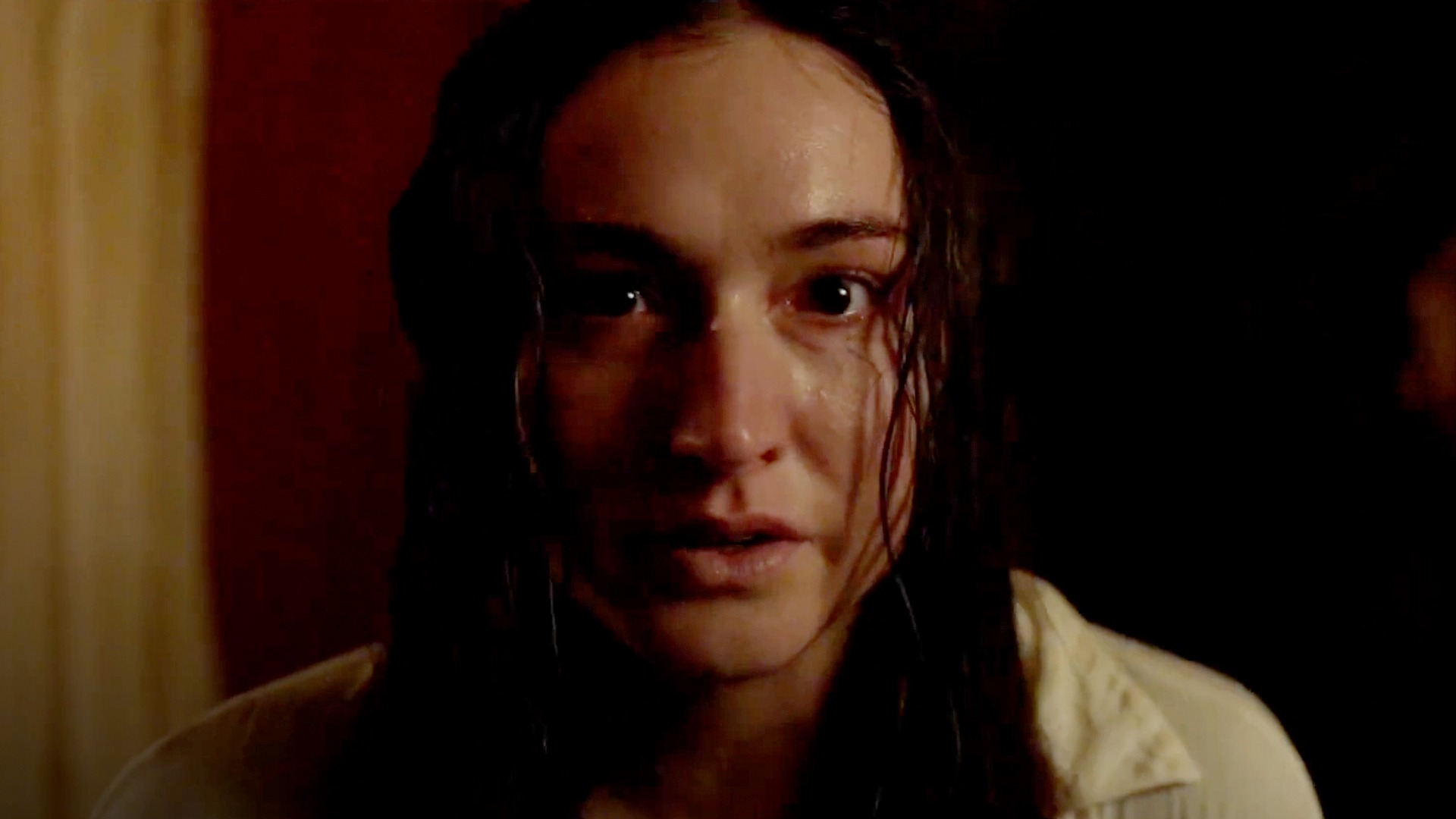
JA: Yeah, that’s right. As opposed to things we’d done in the past and hopefully things we’ll do in the future, the storyboards were a lot more literal than we’d normally be, but that’s because we knew the space. We’d built the set so the storyboards were taking into account the space and the use of that space rather than rocking up to that location and saying, ‘’Here’s the intention.’’ in the storyboards.
That ended up being our North Star for when we’d been in this little room for days, asking ‘’are we just filming the same thing again and again?’’ We could just go back to the storyboards and look at the film visually and go, ‘’No, we don’t need to overthink this bit because it fits this part and this part.’’ So, the storyboards kept us sane on a very claustrophobic shoot!
I’ll bet! You were talking about making the most of this small environment and having that flavor that makes it feel like a bigger thing, so a dark and stormy night is a comfy backdrop for many a horror story, but you seem to have made it a living part of your story. It’s effectively an entity forcing this meeting of two people to happen. Was that part of the plan on some level?
IB: Yeah, one with I was conscious of when writing it was I didn’t want it to feel too small. It had to be contained, but I didn’t want it to feel unnecessarily small. I wanted it to feel like a justified containment. I didn’t want it to feel like we were kind of forcing this story in a particular direction. I wanted this story to exist at this size, this budget, this level of containment for a reason, and that there couldn’t really be a bigger version of it.
So when we set out, we thought, ‘’What are some reasons why two people would be stuck together in this location in a film?’’ and we tossed around ideas, and sound became such an enormous part of it. Sound was always going to be a huge part of it.
JA: We’ve always relied on the use of sound
IB: Yeah, and it was written into the script, but it just became even more so and it was really obvious in post-production and our amazing sound designer Duncan Campbell, once he started, we couldn’t stop because it had become this driving force in the film and we needed it to be the storyteller and have it push the film forward so we kept adding more layers, taking the actors to the studio and recording stuff with them and adding that into the film because it made it richer. It added to that sense of containment, but with scale.
JA: And it was really important to us, without any spoilers, that if you zoom out of the initial experience, the package of the film would need to be, if you were to rewatch it, really present, but not noticeable in a first watch. So that became another layer. We were constantly going, ‘’Oh, that’s gone too far with that. That’s too distracting and out of nowhere. So the storm became this ever-evolving tool, and we were constantly playing with how we could use it, and where it’s turned up to, and how it can shift in the initial experience and make sure that if someone were to rewatch it that we have some clear reasoning and intention behind it.
I did appreciate that afterwards knowing that you did have these other layers to it. It was nice to see that it works on both levels. The grounded element you first present and the actuality of the situation. That was a really nice thing to discover.
JA & IB: Thank You, we appreciate that.
No problem. To make a slow-burn horror movie is pretty bold these days because the way movies are watched has mutated into, shall we say, some slightly disconnected behaviors. I really like what you do with the pacing, but did it ever worry you that going slow might put some people off?
IB: We were terrified!
JA: Yep, terrified!
IB: That was probably one of our major concerns throughout the whole process because you don’t know how people are going to react. We know what we like to watch; we like slow-burn, but like you said, there is a tendency now to be like, ‘’Well, if it doesn’t grab me in the first three minutes, you click on whatever is next.’’. So we were concerned about that, but we just thought whatever we do, if we do it confidently and just go, ‘’This film won’t be for everyone, but the ones who it is for will really enjoy it’’. So it was a terrifying thing, but we could constantly remind ourselves that this wasn’t going to be for everyone, and if we could just our own tastes and our own sensibilities, then it will hit the audience we want it to hit.
JA: That’s right. You have to take the leap and aim it towards something you would like, and I don’t believe we have crazy wild tastes, so there will be someone out there who gets this and enjoys it. So you try your hardest to commit and make it for them, and hopefully, it’ll be something they love.
That sounds fair enough to me! So to wrap up, say you’re stuck in a house, the power’s out, and a heavy storm is going on. How are you passing the time?
IB: That’s a great question. Well, Y’know a game of cards? Never goes astray. I’m terrible because I’m someone who wants to watch movies all the time, so I’d be screwed!
JA: You know, it’s sad, but what we’d probably end up doing is sitting in the dark, talking about filmmaking. We were actually in a power out recently, and a weird event started happening. Weird things falling off the shelves…
IB: Something hit the roof!
JA: Yeah, so we just sat there at the table, in the dark, throwing ideas at each other.
IB: You know, it’d probably be ghost stories and things like that. That’s the best stuff in the power outage.
You’ll Never Find Me is out on VOD now.
